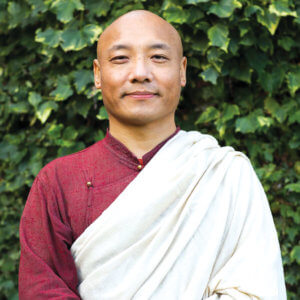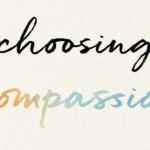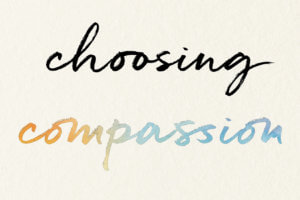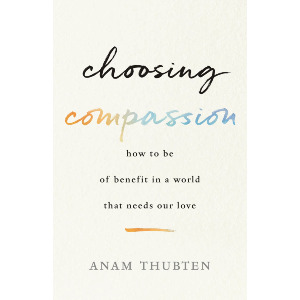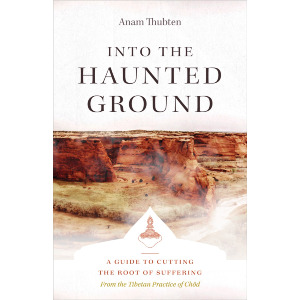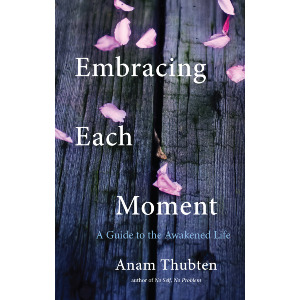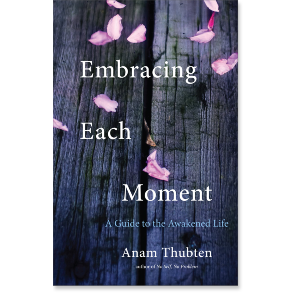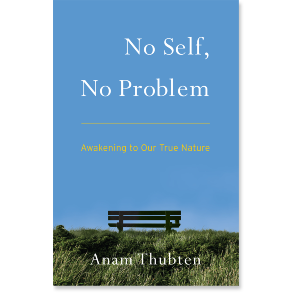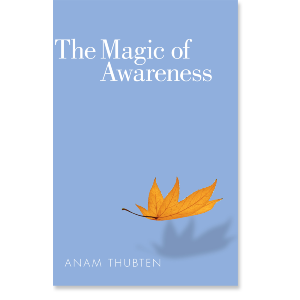One of the strongest impulses we all have is our desire to experience transcendence. When we tap into transcendence we rise above all of our concerns. We are no longer dominated by fear and we are no longer caught up in the web of worldly affairs, which come with anxiety and worry. That’s why transcendence is desirable. Now and then we have moments when we literally rise above all of our personal issues and the worldly affairs that concern us. We have a larger, more expanded view. Everything is fine because we become one with a bigger reality. We call this transcendence. At the same time, we cannot deny what is happening in the world: war, violence, and a great deal of suffering from many causes. Even though we have amazing moments when we rise above everything and transcend reality, in the end we always have to come back to whatever is happening in our personal lives as well as in the world at large.
Many of us feel transcendence during meditation or prayer. It’s wonderful and inspiring to experience. It’s a break that we all need. Yet we cannot live forever in that realm. We have to come back. We cannot deny reality even though it can sometimes be very unpleasant. We might try to understand it and why it is happening. One of the best ways to understand reality is to look at the theory of karma. The theory of karma is very important wisdom cherished by both Hindus and Buddhists. It’s not really a theory or a doctrine. Rather it is a living wisdom that applies to issues on personal, societal, and world levels. That wisdom can help us understand the very complex and dynamic nature of all conditions.
The concept of karma is not new. The word or concept of karma can be found everywhere, even in songs and pop music. When something bad happens, people often say, “It’s my karma.” Sometimes they say, “It’s your karma.” Of course, if we say that to someone, they might be offended because it sounds like we are saying it is their fault. However, in Tibetan culture when you say, “It’s my (or your) karma,” there is a sense of surrender, acceptance, peace, compassion, and wisdom. When we see someone who is going through a difficult situation, and we say with love and a kind heart that it’s their karma, they understand. They don’t feel that we are being coldhearted or insensitive. They take it as spiritual advice, as a wonderful reminder, a reminder of the wisdom teachings of the awakened ones.
Buddhist and Hindu traditions have a deep understanding of karma, and they use its theories to understand the complex, dynamic nature of life. One answer for what is happening in the world right now is because it’s our karma. To say it is our karma means that it is happening because of a complex interconnection of causes and conditions. In Buddhist thinking everything comes into being through causes and conditions. Nothing is purely random or accidental. Everything we are witnessing right now, both at a personal level and at the larger societal level, is the consequence of a myriad of causes and conditions. It is the fruition of all of the choices that people have made over time along with the choices people are making today. It includes the choices that you and I make today as well as the choices our parents, grandparents, and ancestors made. It also includes the actions that they took and the state of consciousness in which they lived.
In Tibetan culture when you say, “It’s my (or your) karma,” there is a sense of surrender, acceptance, peace, compassion, and wisdom.
Karma teaches us that every action that we take has a very powerful impact. It also reminds us that the state of consciousness in which we live has a long-term impact on our own life as well as on the lives of the people around us. Look at nature. Nature is perhaps one of the most powerful teachers. Today we are witnessing a host of ecological crises, including earthquakes, fires, and climate change. Much of this environmental crisis is a result of human action. From that perspective we can see that the actions we take or do not take have a great impact, an impact that goes beyond our own personal life. The ecological crisis is a human creation, even though some people deny it. As humanity, we all created it together. Its reality is a karmic manifestation that we can no longer deny. We are all witnessing this law of karma.
Buddhism teaches that just as our actions have karmic results, the state of our consciousness has karmic results as well. That’s why it is very important to look inside and make sure that we are choosing the state of consciousness we want to live in. We can choose to reside in an unenlightened state of consciousness, or we can choose to reside in a more enlightened state. In the more enlightened state there is more love, more compassion, and more of a sense that we are all in this together. While the theory of karma teaches us that the environmental conditions happening now are somehow a result of our own actions, it also teaches that we can do something about them. There is no fate that we cannot change. We can take actions to change the course of the future. We have the power to reshape the future—our own future as well as the future of humanity. It teaches us that all of the circumstances and conditions we experience in life are a manifestation of the state of mind that we choose to reside in. This is true because the state of our mind determines the actions we take. From the point of view of collective karma, everything that is happening in the world is no longer someone else’s karma. It’s our karma. In the end your karma is my karma, and my karma is your karma. We all share the same fate.
The twelfth-century Indian sage Padampa Sangye, in his teaching called Advice to the People of Tingri, advised us to hold the view that the whole world is our land, our community, and our tribe. He said you cannot exclude anybody from your heart. You have to widen your heart and embrace the whole world as your neighborhood and all living beings as your brothers and sisters. You have to be willing to share their pain and suffering as well as their happiness and joy. Collective karma teaches that it is not wise to try and divide humanity. It teaches us to transcend all divisions. We often create a division by thinking that our group or tribe is the wise, enlightened, and evolved tribe, the ones who always make the right decisions, while other groups are the more primitive, unenlightened, and unevolved ones who make bad decisions. It is easy to make these unhealthy divisions, but Padampa tells us that any kind of division is unhealthy and merely the work of the ego. He urges us to widen our heart and embrace all of humanity because there are no divisions. There is only one world and only one race. We are all family members. Imagine that a member of your family, someone that you love completely and unconditionally, was going through some difficulty. You naturally want to help them. You want to share both the happiness and the suffering of your family members. It would be very powerful if we could imagine that all of humanity is our family. Actually, we are just one big family. Our family members may say things, do things, and demonstrate a state of consciousness that completely challenges us. But they are family, and in the end, the wise response is to have compassion.
We need to have compassion for ourselves and for all of humanity because we are all carrying this very heavy burden of karma.
Recently there was a story in the news about two young boys who were swimming in the ocean and got into trouble in a riptide that was very strong. They were unable to swim back to shore. Some of their family members swam out to help them, but they too got caught in the riptide. Soon there were nine people stranded in the ocean unable to reach shore. People on the beach noticed what was happening, and they stepped in. They made a human chain by holding hands. The line extended from the beach into the water where the people were stranded. One by one those family members grabbed onto the hands of the human chain and were able to make it back to shore. All of the swimmers were saved. No one was injured. This true story proves the power we have when we can act together to care for strangers in need. We can help each other a great deal.
We need to have compassion for ourselves and for all of humanity because we are all carrying this very heavy burden of karma. This heavy burden of pain and suffering. No one escapes this. So, we have to have acceptance and forgiveness for ourselves and all of humanity. Basically, we need to give everybody a little bit of time: time to grow, time to make mistakes, and time to become more mature. We are all here on earth for a very short period of time. We have to have compassion and understanding for all. We have to accept who we are, accept our suffering, our mistakes, the wrong choices we make, and the state of consciousness that we as a whole society live in.
The theory of karma is very empowering. It teaches us that we can change ourselves and we can change our situation. Sometimes change doesn’t happen overnight, but we can at least take actions that begin to change our collective karma. Buddhism teaches that karma is not just the action that we take but also the state of consciousness that we choose to reside in. Mental karma is one of the most powerful forces in the world because every action we take comes from our mental states, what we believe to be true. Our mind is the very thing that determines the nature and quality of the words we utter and every action we take. The best way to change the world is through developing love for ourselves, for each other, and for all living things that share our beautiful earth. Love is a very powerful force. In Tibetan culture, there is a saying. “When there is a good heart, everything is going to be okay.” The good heart is the true nature of all of us. Let’s hold that good heart for everyone—for ourselves, our world, and all of humanity.
Share
$16.95 - Paperback
